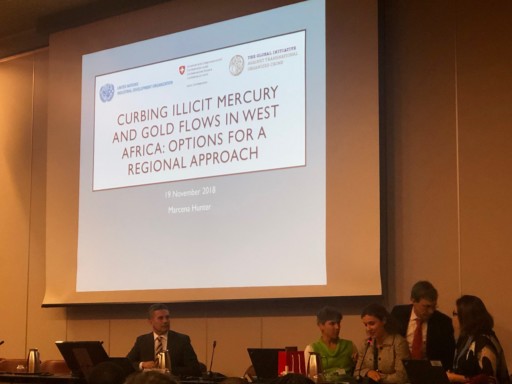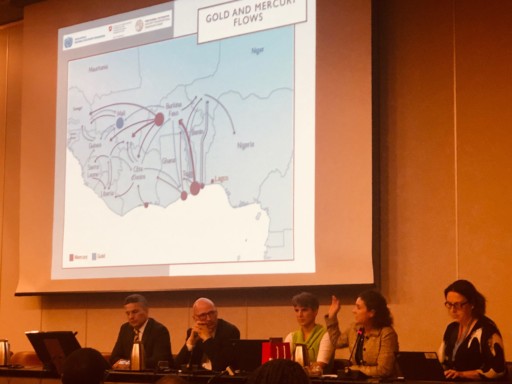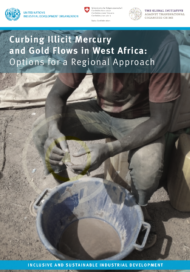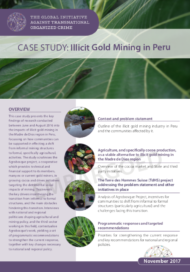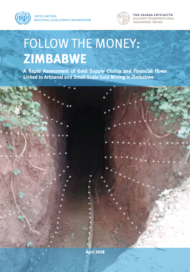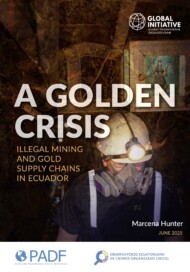Posted on 20 Nov 2018
On 19 November, Senior Analyst Marcena Hunter presented the report Curbing Illicit Mercury and Gold Flows in West Africa: Options for a Regional Approach at a side event hosted by the UN Industrial Development Organization and Switzerland at the Second meeting of the Conference of the Parties to the Minamata Convention on Mercury (COP2).
The adoption of the Minamata Convention on Mercury has profound implications for the ECOWAS region. Artisanal and small-scale gold mining (ASGM) is currently the largest source of anthropogenic mercury emissions, thus reducing the scale of use and emissions in the sector is a key goal of the Convention. ASGM is practiced in nearly every ECOWAS country, with mercury widely used by the region’s estimated 2-3 million miners, and is a major regional export. As such, interventions which aim to reduce mercury use in ASGM have not only environmental and health implications, but also impact on livelihoods and state revenues.
Registered mercury imports fall far below estimates of mercury consumption, meaning the vast majority of mercury flows are illicit. Thus, critical to reducing mercury use and flows is formalization, or at the very least, greater regulation of flows. As documented by various publications published under the Gold Watch initiative, informal and illicit flows of gold are an obstacle to such efforts. Mercury is supplied to upstream partners as a way of securing gold flows. In this way, the mercury and gold supply chains create a self-reinforcing cycle that can be difficult to break.
As ECOWAS countries embark on the early implementation of the Minamata Convention on Mercury, the research not only on illicit flows, but also on regulatory actors and frameworks, highlights the need to involve a diverse range of government actors in discussions and increase coordination on mercury flows. In turn, the report makes the following recommendations:
- Improve knowledge of mercury flows
- Standardise mercury-specific regulatory frameworks
- Increase engagement with and capacity of customs organisations
- Focus regional efforts on hubs or pinch points in supply chains
- Reward miners who extract gold without mercury or improved technology
- Harmonize gold export regimes
- Strengthen regulatory oversight of gold imports in destination hubs
